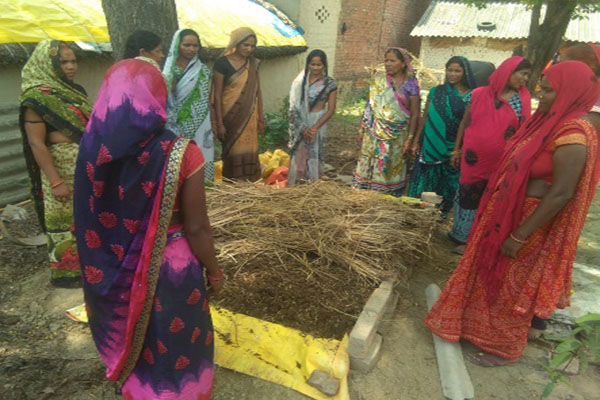Earth to Empowerment
Radhika’s Organic Leap with Vermi Compost
In the quiet Tikri village in Jalalpur block of Ambedkar Nagar district, lives Radhika, a woman whose determination transformed her humble farming practice into a model of sustainability. As the president of the Radhika Mahila Kisan Samooh (Radhika Women Farmers’ Group), she balances agricultural work and daily wage labour to support her family of four.

Radhika cultivates wheat and rice, but her desire to improve crop quality led her to explore organic methods. During a training session organized under the Jan Shikshan Kendra programme supported by ChildFund India and the European Union, community mobilizer Hemlata introduced the benefits of organic fertilisers—particularly vermi compost.
Inspired by the session and encouraged by her son’s suggestion to build a pit using bricks, Radhika took a bold step. She borrowed money from fellow villagers, purchased bricks, built a vermi compost pit and sourced earthworms to kick-start the process. Her first goal: apply the compost to her wheat crop, nourish her land and then take her produce to market.
But the ripple effect had just begun.
Seeing Radhika’s initiative, neighbouring farmers—including women from various farmer groups—started building their own vermi pits. Vandana, another local woman, created her compost pit beside her cattle shelter. Even men from the village visited Radhika’s setup, curious and inspired by its potential.
Today, vermi compost is the talk of Tikri village. Thanks to Radhika’s bold example, awareness of organic farming is rising. Local women are leading the charge, transforming not just their fields but also community attitudes toward sustainable agriculture.
Radhika’s story is a glowing example of how knowledge, courage and community support can turn everyday soil into seeds of change.
